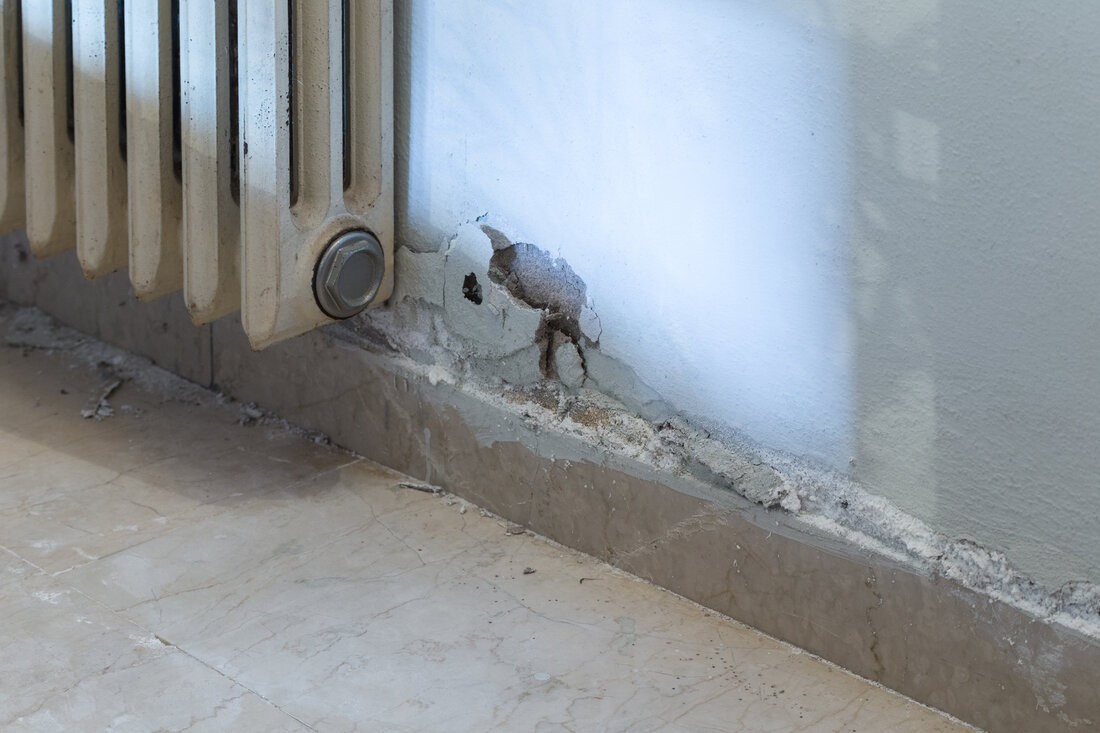The Role of Lease Agreements
When it comes to water damage in rental properties, the first step in determining responsibility is to examine the lease agreement between the landlord and tenant. The lease agreement should clearly outline the responsibilities of each party in the event of water damage. This may include who is responsible for maintaining and repairing plumbing fixtures, appliances, and any damage caused by the tenant’s negligence.
If the lease agreement is silent on the issue of water damage, local laws and regulations may come into play. It’s important to familiarize yourself with the specific laws in your jurisdiction to understand the rights and obligations of both the landlord and the tenant.

Tenant Negligence
In some cases, water damage in rental properties may be the result of the tenant’s negligence. This can include actions such as failing to report leaks in a timely manner, improperly using plumbing fixtures, or causing intentional damage. When tenant negligence is determined to be the cause of the water damage, the tenant may be held responsible for the cost of repairs.
It’s important for landlords to conduct regular inspections of their properties to identify any potential issues and address them promptly. This can help prevent minor problems from escalating into major water damage incidents.
Insurance Coverage
Another factor that can affect responsibility for water damage in rental properties is insurance coverage. Both landlords and tenants may have insurance policies that cover water damage. The specific terms and coverage limits of these policies can vary, so it’s important for both parties to review their policies and understand what is covered.
If the water damage is covered by the landlord’s insurance policy, they may bear the responsibility for repairs. However, if the tenant’s negligence contributed to the water damage, the landlord’s insurance company may seek reimbursement from the tenant’s insurance policy.
Steps in Water Damage Restoration
Water damage restoration is a multi-step process that involves thorough assessment, cleanup, and repairs. When faced with water damage in a rental property, it’s important to act quickly to minimize further damage and prevent the growth of mold and mildew.
- Assessment: A professional water damage restoration company will assess the extent of the damage and create a detailed plan for restoration. This may involve using specialized equipment to detect hidden moisture and assess structural integrity.
- Water Extraction: The next step is to remove standing water using pumps and extractors. This helps prevent further damage and allows for faster drying.
- Drying and Dehumidification: Specialized equipment such as fans and dehumidifiers are used to dry the affected areas. This helps prevent the growth of mold and mildew.
- Cleanup and Sanitization: All affected surfaces and belongings are thoroughly cleaned and sanitized to remove any contaminants and restore a safe living environment.
- Repairs and Restoration: Once the affected areas are dry and clean, any necessary repairs and restoration work can be performed. This may include replacing damaged drywall, flooring, and fixtures.

Flood Damage Cleanup
In cases where water damage is caused by a flood, additional steps may be necessary for proper cleanup and restoration. This can include the removal of contaminated materials, disinfection, and implementing measures to prevent future flooding.
Mold Remediation
Water damage can often lead to the growth of mold and mildew, which can pose health risks and cause further damage to the property. Mold remediation involves the identification and removal of mold, as well as addressing the underlying moisture issue to prevent future growth.
It’s important to hire a professional mold remediation company to ensure that the mold is safely removed and the affected areas are properly cleaned and restored.
The Role of Water Damage Contractors
Water damage restoration is a complex process that requires the expertise of trained professionals. Water damage contractors specialize in assessing and repairing water damage in residential and commercial properties.
These contractors have the necessary equipment, knowledge, and experience to effectively mitigate and restore water damage. They can also work with insurance companies to ensure a smooth claims process.
Water Damage Assessment
Assessing the extent of water damage is a crucial step in the restoration process. Water damage assessment involves identifying all areas affected by water, determining the category and classification of the water damage, and creating a plan for mitigation and repairs.
A thorough water damage assessment is essential for accurate cost estimation, insurance claims, and addressing potential health and safety hazards.
JGW Group Water Damage Restoration Deerfield Beach
If you are facing water damage in your rental property, it’s important to contact a reputable water damage restoration company like JGW Group Water Damage Restoration Deerfield Beach. They have the expertise and resources to handle all aspects of water damage restoration, flood damage cleanup, and mold remediation.
JGW Group Water Damage Restoration Deerfield Beach provides prompt and efficient services, ensuring that your property is restored to its pre-damage condition. With their help, you can navigate the complex process of water damage restoration with ease.

Who is responsible for water damage in a rental property?
Does renters insurance cover water damage?
Water damage in rental properties is a complex issue, and the responsibility for repairs and restoration can vary depending on various factors. By understanding the role of lease agreements, tenant negligence, and insurance coverage, both landlords and tenants can navigate the process more effectively. Partnering with a reputable water damage restoration company like JGW Group Water Damage Restoration Deerfield Beach can also ensure a smooth and efficient restoration process.
Sources:



